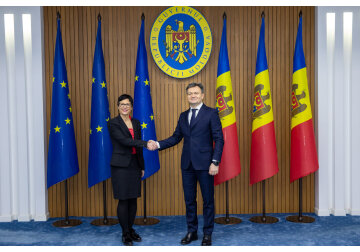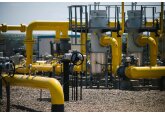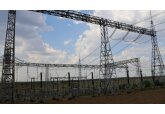
The European Union will allocate Moldova 250 million euros in 2025 to overcome the energy crisis, and is ready to allocate another 60 million euros to the population of the Transnistrian region under certain conditions
This is stipulated by a letter of intent on a comprehensive package of measures to ensure Moldova's energy sustainability and energy independence, signed on Tuesday by the Moldovan government and the European Commission represented by Prime Minister Dorin Recean and European Commissioner for Enlargement Marta Kos. According to the European Commission, the EC and Moldova agreed on a 2-year Integrated Strategy for Moldova's Energy Independence and Sustainability, which has two goals: to rid Moldova of the instability of Russian energy supplies and to fully integrate it into the EU energy market. According to this strategy, total assistance to Moldova will amount to 250 million euros for 2025, of which 100 million euros will be provided by the EU by mid-April. In addition to this general support and within the framework of the same strategy, 60 million euros is proposed to be allocated to the inhabitants of the Transnistrian region of Moldova (left bank of the Dniester), subject to certain conditions. In the short term, the overall package of measures will support Moldovan consumers facing a sharp increase in electricity prices on the right bank of the Nistru/Dniester. It will compensate all excessive electricity costs for all households up to 110 kWh monthly until December 31, 2025. Additional funds will also be provided for the Assistance Fund to alleviate electricity bills for the most vulnerable households, which will make it possible to compensate the entire increase in electricity costs for social institutions, including kindergartens, schools and hospitals. Additional funding of 15 million euros will be provided to compensate the electricity bills of agri-food and manufacturing enterprises. In addition, through the involvement of international financial institutions, additional funding of 50 million euros will be made available for sustainable investments in energy efficiency projects for local authorities, households and SMEs. As part of this strategy, 60 million euros in funding will also be provided to more than 350 thousand Transnistrian residents left in the cold in January after Gazprom cut off gas supplies. This support will be conditional on measures to protect fundamental freedoms and human rights in the Transnistrian region and excludes gas funding for energy-intensive activities. In the longer term, EU support will enable Moldova to improve its energy security through investments and reforms for energy transition and ensure a complete phase-out of Russian energy supplies. The package of measures is a continuation of the work done by the European Union and partners to reduce Moldova's energy vulnerability. As the European Commission notes, today Moldova's energy system ensures the supply of electricity and heat without any disconnections. A comprehensive strategy to ensure Moldova's energy independence and sustainability will be implemented in three stages to address both immediate needs and long-term objectives. Within the first phase, the European Commission has already allocated 30 million euros in EU emergency aid, which was announced on January 27. 10 million euros will allow Moldova to purchase electricity on the European markets for the right bank of the Dniester, which will help reduce electricity prices. 20 million euros are earmarked for the emergency purchase of gas to meet the basic needs of the population in the Transnistrian region. The second step envisages 100 million euros in additional financial assistance to Moldova by mid-April to ease the problems of rising electricity bills for consumers on the right bank of the Dniester. Additional funding is also envisaged to support the population of the Transnistrian region, subject to measures to ensure fundamental freedoms and human rights. In the third phase, the European Commission and international partners will finance actions and investments to increase Moldova's energy sustainability and independence, and support the reduction of energy costs for all Moldovans. These measures will be included in the Moldova Growth Plan Reform Agenda and implemented by the end of 2026. “The comprehensive energy support package is further evidence of the EU's strong support for Moldova. After the European Parliament adopts Moldova's Growth Plan, the first tranche to stimulate the country's economy and support its accession to the EU should be granted by summer,” the European Commission said. As the EC emphasizes, Gazprom has failed to fulfill its contractual obligations by stopping gas supplies to the Transnistrian region of Moldova. As a result, a serious energy crisis has emerged with huge economic and social consequences for the residents of Moldova and a devastating impact on the livelihoods of the population of the Transnistrian region. To date, the EU has already provided 240 million euros in direct budgetary support to Moldova's energy system between 2021 and 2024 to support the most vulnerable people. In the 2023-2024 heating season, more than 750 thousand households received compensation through the EU-supported Energy Vulnerability Reduction Fund. On January 27, the EU offered a 30 million euros emergency aid package as a first step to support Moldova in overcoming the serious energy crisis triggered by Gazprom. In addition, since 2021, the EU has provided 67 million euros in grants that have mobilized more than 640 million euros in investments through international financial partners. These grants support energy efficiency in Moldova's public and residential buildings and the transition to green energy. The EU also supports capacity building and piloting of the Moldovan Residential Energy Efficiency Fund. Moldova also received 295 million euros in EU macro-financial assistance from 2023, of which 220 million euros in loans and 75 million euros in grants. Among other priorities, this aid was directed at reforming the energy sector. From 2022, Moldova's grid is connected to the European continental electricity grid. On December 1, 2024, export capacity from the EU to Moldova and Ukraine was increased from 1.7 to 2.1 GW, including 315 MW for Moldova. Later in December, an agreement was reached under which Moldova will be able to benefit from capacity unused by Ukraine. In addition, with the EU's help, the right bank of the Dniester was able to completely cut off Russian gas supplies in 2022, at the height of the gas supply crisis. Since then, the right bank of the Dniester has been supplied exclusively from EU gas markets. // 04.02.2025 - InfoMarket







